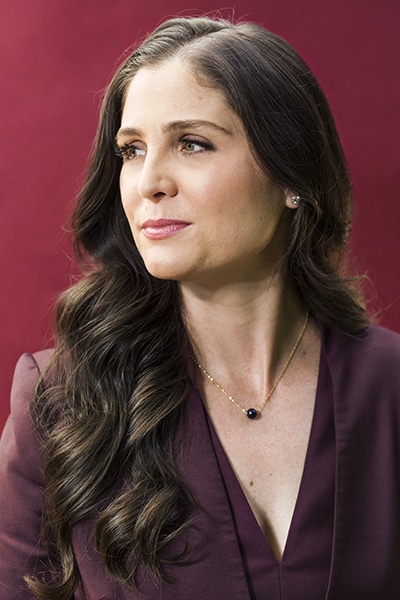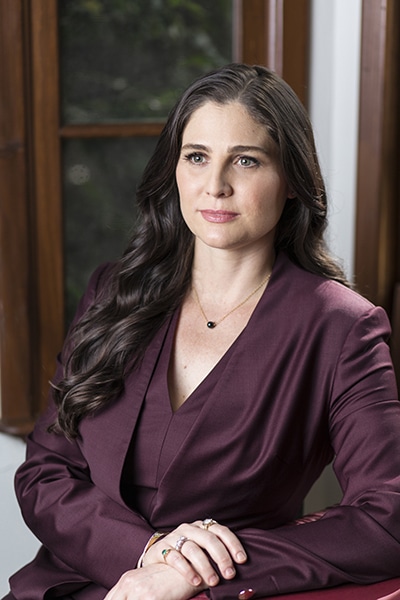Manya Deva Natan is an estate-planning attorney obsessed with doing planning the right way. Whether she is servicing her domestic clients or her international clients, her commitment remains the same: overcome the pitfalls inherent in traditional estate planning and ensure the planning is done the right way, every time. In the years that Natan has practiced as an estate-planning attorney, she has encountered the near-ubiquitous problems inherent in the profession. Most attorneys approach estate planning as a transactional process. They draft documents for their clients, and then they are done. This methodology leaves clients underserved, as the planning consistently falls short of what it promises. Natan is passionate about changing this and making sure that the estate-planning process works as it should and delivers what it promises, for every client.

Natan’s estate-planning expertise is extensive. Her practice ranges from basic probate-avoidance work to complex tax and asset-protection planning. She has a subspecialty in international estate planning and represents not only domestic clients but clients from around the world. Natan’s international practice developed, in part, from her background in international affairs.
After receiving her undergraduate degree, Natan spent time living and working throughout Central America, assisting with small-business development. She went on to earn a master’s degree in international affairs from Columbia University. She was awarded a fellowship to live and work in Bolivia, once again assisting with small-business development. Following this international training, Natan earned her law degree from Stanford University. After law school, she practiced real estate law at a large firm and then transitioned to a small firm to focus exclusively on estate planning. It was there that she had her first international estate-planning matter and discovered the synergy between her international training and her legal expertise. When she went on to found her own law firm, she dedicated her practice to serving both domestic and international clients, as each demographic presents unique needs and planning opportunities.
Today, her firm handles a variety of planning matters. Her domestic work includes drafting revocable trusts—accompanied by pour-over wills—durable powers of attorney, and advanced healthcare directives. More complicated matters include drafting irrevocable trusts, forming LLCs for valuation discounting, and engaging in charitable planning for high-net-worth clients. On the international side, Natan defines her practice as “whenever people or assets move transnationally.” Her clients include, but are not limited to, US citizens who are beneficiaries of foreign trusts or are inheriting assets from other countries, citizens of foreign countries who are investing in real estate or own vacation homes in the US, as well as US citizens who own vacation homes in other countries.
A key component of Natan’s work for international clients involves assisting them to navigate around the exceedingly low estate tax exemption currently available for nonresident aliens. For US citizens, the estate tax exclusion is currently set to approximately $11.2 million per individual, indexed for inflation. This means that an individual can gift or leave this amount to his or her heirs free of estate tax. Married couples can combine this exclusion. That means married couples can pass down approximately $22.4 million worth of assets without incurring estate tax. With that being said, US citizens and permanent residents are taxed on their worldwide assets. This means that assets anywhere in the world will be subject to this exclusion amount.
For nonresident aliens, however, the estate tax exclusion is a mere $60,000. The difference is that nonresident aliens are only taxed on their US situs assets, not their worldwide estate. “If, for example, I have a client who lives in Australia and he or she purchases a condominium in the US as an investment property, that condo will be taxed at 40 percent for any amount over $60,000 if he or she takes title to the property as an individual,” Natan says.
This issue came into play for two of Natan’s European clients, who decided to purchase properties in California, each valued at around $2 million. In order to keep the properties outside of her clients’ taxable US estates, Natan created California-based corporations owned by foreign corporations. By doing this, the properties were not considered US situs real property. Instead, they were considered stock in a foreign corporation, which means they were outside of the reach of the US estate tax.

Regardless of the specific type of matter, whether domestic or international, Natan’s focus is unwavering. She is determined to ensure that her clients receive planning that is done the right way, every time. She does this through her unique client-maintenance program that is designed to eliminate the transactional bias inherent in most estate planning. As Natan likes to explain, estate planning is a two-step process. The first step is to meet with an attorney to get documents drafted. The second step entails getting all applicable assets titled in the name of the trust. This is also referred to as “funding the trust.” Assets must be retitled (i.e., the trust must be funded) in order for it to work effectively. Unfortunately, the vast majority of attorneys will transfer title to real property only and then leave it to their clients to retitle bank accounts and brokerage accounts, change beneficiary designations on life insurance, etc. The fact is, however, that most clients don’t follow through. Perhaps they get busy and forget. Or they don’t understand the importance of it. Or they procrastinate. As Natan likes to say, “Estate planning is the procrastination practice of law. Everyone knows they need to do it, but nobody wants to.”
Even if clients succeed in getting their initial assets titled into the name of the trust, when those clients acquire assets later on, including new homes or an inheritance, they often neglect to title those assets in the name of their trust. Natan’s program is designed to overcome this ubiquitous problem. Instead of leaving it to chance, Natan and her staff assist program members with trust funding. This way, nothing is left undone, and, as Natan says, “we can ensure it is done the right way, every time.”
Another common problem with most estate planning is that clients forget to contact their estate-planning attorneys when they should. Major life events happen, events that create planning opportunities—such as birth, death, marriage, and divorce—but clients fail to call their attorney. To overcome this problem and ensure that her clients are receiving the best planning possible, Natan’s client-maintenance program is designed to foster ongoing contact with her clients. Natan considers estate planning the legal side of wealth management. As she likes to say, “people would never consider meeting with their financial advisors once every decade. Yet, that is how often most clients meet with their estate-planning attorney.” Natan’s program participants meet with her annually. She reviews what has changed in their lives, including both financial changes and familial changes. “It is essential that we stay abreast of what is happening in each client’s life so that we can be proactive and make the optimal planning choices,” Natan says.
Natan’s ultimate goal is to make sure her clients are well protected and receive the full benefits that estate planning can offer. She is committed to overcoming the pitfalls inherent in how estate planning is traditionally practiced and insists on doing planning the right way, every time.


